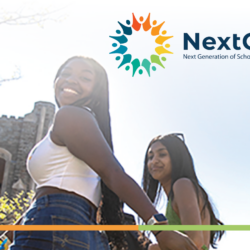
Brooks School Diversity, Equity, Inclusion, and Belonging Working Group
Building the new Jeb E. Brooks School of Public Policy on a strong foundation of diversity, equity, inclusion, and belonging (DEIB) is one of our critical priorities. We envision equity as a cross-cutting theme that runs throughout our strategic priorities in research, education, and public engagement. We see the advancement of excellence and innovation in research on race, racism, and public policy, broadly defined to include intersections with global policy and comparative perspectives, as central to training the next generation of policy makers, scholars, and leaders with the tools to build an anti-racist future. Further, we see the advancement of public engagement with policy makers and community members as integral to connecting our research and teaching to the pressing social justice issues of our time.
The Brooks School DEIB Working Group is charged with developing concrete steps and metrics to improve diversity, equity, inclusion, and belonging throughout the core areas of Brooks. This will include changes to diversify and strengthen our community of belonging, enhance our educational programs, advance research and engagement in inequality and social justice, and create opportunities for deeper learning and discussion in these areas. The DEIB Working Group includes students, staff, and faculty (see our membership listed below).
We have important work ahead and envision many opportunities for meaningful engagement within our community. Please join our efforts! Reach out to Kelly Musick, Chair of the DEIB Working Group, at musick@cornell.edu or brooks_deib@cornell.edu with your ideas, suggestions, and concerns.
We encourage anyone who experiences or witnesses any act of bias or discrimination to report it here. You may also reach out at any time to musick@cornell.edu.
DEIB Working Group
Events & Highlights
Check back soon for upcoming events.
Brooks School Initiatives to Advance the Next Generation
Maria Fitzpatrick and Matt Hall developed the course “Big Data for Big Policy Problems” (PAM 2070) to teach students data analysis skills that complement a wide range of academic and professional fields and can be used to address pressing policy problems. In summer of 2023, a non-credit version of this class was offered at no cost to underserved students nominated by local high schools and other partners, as well as children of Cornell faculty and staff. This pre-college certificate program aims to bridge the gap in data science education and create a more inclusive field. It is a collaboration between eCornell, Brooks, and the School of Continuing Education. Read more in the Cornell Chronicle.
Past offerings of “Big Data for Big Policy Problems” have included a collaboration with the nonprofit National Education Equity Lab (NEEL) to give high school students in underserved communities the opportunity to develop skills in data science applications. Read more in the New York Times and Cornell Chronicle.
Resources
All Students, Faculty & Staff
- President Martha Pollack’s statement on racial equity
University-wide initiatives to support diversity. - Belonging at Cornell
The University’s central diversity initiative hub. - Cornell Programs, Departments, Cultural, Resource, & Advising Centers
Provides a full list of university-wide organizations and groups that promote diversity and inclusion. - Cornell Anti-Racism Resources
Provides a full list of resources, including programs, webinars and readings. - Cornell Resources to Address Antisemitism
Provides a full list of resources, including programs, webinars and readings. - Cornell Resource to Address Islamophobia
Provides a full list of resources, including programs, webinars and readings.
All Students
- ALANA Intercultural Board
Provides programming and funding for programming related to diversity and intercultural efforts. - American Indian & Indigenous Studies Program
Provides support to students who identify as American Indian or Indigenous, including internship, funding, scholarship, residential life, and other opportunities. - Cornell Identity Resources
Resources on identity and cultural centers and groups, to engage with individuals of similar background or connect with identities other than your own. - LGBT Resource Center
A wide variety of resources, information about the LGBT community at Cornell, and ways to get involved. - Women’s Resource Center
While this is open to all female students, the group expresses a specific commitment to women of color.
Undergraduate Students
Graduate Students
Faculty, Post Docs, TAs & Staff
All Students
Undergraduate Students
Graduate Students
All Students, Faculty & Staff
Graduate Students
All Students, Faculty & Staff
Faculty, Post Docs, TAs & Staff
All Students, Faculty & Staff
All Students, Faculty & Staff
Graduate Students
Demographic Profile of the Brooks Community
The following data offer a benchmark for tracking the Brooks School’s efforts to increase the diversity of our community. We follow university practices for collecting and reporting data, which are determined in large part by federal mandates.
Student % Distribution by Race and Ethnicity, Fall 2022 (N=691)
| % UG | % MHA/EMHA | % MPA/EMPA | % PhD | % Total |
| Asian or Asian/White (U.S.) | 30.2 | 21.4 | 6.0 | 9.5 | 17.8 |
| Black, Hispanic, and/or Indigenous (U.S.) | 18.6 | 24.3 | 9.7 | 14.3 | 16.1 |
| White/Unknown (U.S.) | 44.6 | 40.7 | 24.7 | 45.2 | 36.2 |
| International (any race/ethnicity) | 6.6 | 13.6 | 59.6 | 31.0 | 30.0 |
| Total | 100 | 100 | 100 | 100 | 100 |
Notes: Few students report “unknown.” “International” includes non-U.S. citizens and those with a non-permanent resident status. UG = undergraduate, MHA = Master of Health Administration, MPA = Master of Public Administration.
Faculty and Staff % Distribution, by Race and Ethnicity, Fall 2022 (N=141)
| % All faculty | % University faculty | % RTE faculty | % Staff | % Other | % Total |
| Asian or Asian/White | 6.7 | 6.5 | 6.8 | 2.9 | 23.5 | 7.8 |
| Black, Hispanic, and/or Indigenous | 18.9 | 17.4 | 20.5 | 11.8 | 17.6 | 17.0 |
| White/Unknown | 74.4 | 76.1 | 72.7 | 85.3 | 58.8 | 75.2 |
| Total | 100.0 | 100.0 | 100.0 | 100.0 | 100.0 | 100.0 |
Notes: Few faculty and staff report “unknown,” and only two fit the definition of international, thus we do not tabulate this separately. “University faculty” includes Assistant, Associate, and Full tenure-track faculty; “RTE” includes research, teaching, and extension faculty; “staff” include administrative and student services roles; and “other” includes all faculty modifiers (acting, adjunct, courtesy, emeritus/a, and visiting), postdocs, and temporary staff.
University-Wide Demographic Data
Cornell University Diversity Dashboard
Graduate School Diversity Dashboard
National Data
Faculty pipeline PhD Production by Program, Race and Gender
An online tool, which provides the total number of PhD students by race, gender, and course of study at the top 50 institutions.


